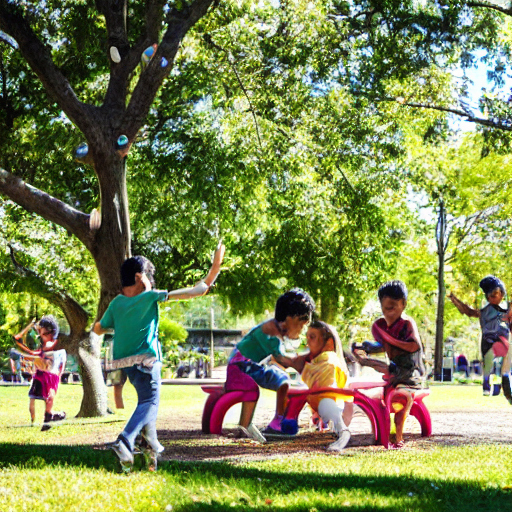Raising children in today’s fast-paced and interconnected world requires parents and guardians to focus not only on the academic and physical development of their offspring but also on their social skills. Social interactions are a crucial aspect of a child’s development. These interactions foster essential skills like empathy, cooperation, and effective communication. In this article, we will explore strategies to encourage positive social interactions among children.
Understanding the Importance of Social Interactions
Social interactions help shape a child’s identity, develop necessary life skills, and lay the foundation for future relationships. Children who learn to interact positively with their peers tend to be more adaptable, confident, and emotionally intelligent. Therefore, understanding why and how to facilitate these interactions is the first step toward helping children grow into well-rounded adults.
Creating a Supportive Environment
Setting the Stage at Home
The home environment is the first social playground for children. Parents can encourage positive interactions by modeling respectful communication and conflict resolution. Open dialogue about feelings and experiences can teach children to articulate their emotions and understand others perspectives.
Involving Family in Social Activities
Family activities that require cooperation, such as cooking together, playing board games, or engaging in team sports, can enhance children’s ability to work collaboratively and appreciate the value of teamwork.
Encouraging Play and Extracurricular Activities
The Role of Play in Social Development
Play is an essential medium through which children learn about their world. Through play, children naturally practice taking turns, negotiating roles, and solving conflicts. Parents and educators can create opportunities for children to engage in both structured and unstructured play.
Engaging in Extracurricular Activities
Signing children up for clubs or sports teams can introduce them to new peers and foster friendships based on shared interests. These settings also enable children to work collaboratively toward common goals, understand leadership dynamics, and appreciate diverse skill sets.
Teaching Empathy and Emotional Intelligence
Understanding and Expressing Emotions
Educators and parents should teach children to recognize their own emotions and those of others. Activities like storytelling, role-playing, and discussing characters feelings in books or movies can cultivate empathy.
Encouraging Active Listening
Listening is a vital skill in fostering social interactions. Teaching children active listening involves helping them to focus on the speaker, providing feedback, and asking questions to gain clarity. This practice not only facilitates understanding but also demonstrates respect and interest in others.
Facilitating Conflict Resolution
Conflicts are a natural part of social interactions. Teaching children constructive ways to deal with disagreements is crucial for their development.
Encouraging Dialogue
Encouraging children to talk about their conflicts facilitates resolution. Asking children to express what happened, how it made them feel, and urging them to listen to the other person’s perspective teaches problem-solving skills and promotes understanding.
Modeling Conflict Resolution
Parents and teachers can serve as role models in handling conflicts. By demonstrating calm and effective conflict resolution strategies, adults can instill these same techniques in children.
Nurturing Diverse Friendships
Introducing Children to Diverse Environments
Exposing children to varied cultural, racial, and socio-economic environments broadens their understanding and appreciation of differences. Diversity in interactions fosters greater empathy and tolerance.
Encouraging Friendships Across Different Backgrounds
Supporting children in forming friendships with peers from diverse backgrounds can enrich their social understanding and help break down biases and stereotypes. Engaging in conversations about diversity and inclusion further enhances these experiences.
Monitoring and Guiding Social Media Interactions

In today’s digital age, social interactions often extend beyond face-to-face encounters. Here, too, parents play a critical role.
Establishing Rules and Guidelines
Setting clear guidelines for appropriate online behavior is essential. Discussing the importance of kindness, privacy, and the potential consequences of online interactions helps children navigate the digital landscape responsibly.
Encouraging Positive Online Engagement
Parents and educators should encourage children to engage positively online by sharing supportive comments, participating in constructive discussions, and learning to curate a healthy digital environment.
Building a Community Support System
Connecting with Other Parents
Networking with other parents provides opportunities to arrange playdates or group outings, which can foster new friendships among children. These interactions can also offer insights into how other families encourage positive social behavior.
Collaborating with Schools and Teachers
Teachers play a pivotal role in a child’s social development. Collaborating with educators can reinforce the social skills children learn at home. Participating in school events and parent-teacher meetings can enhance the home-school connection, creating a unified approach to social education.
In conclusion, fostering positive social interactions among children requires a multifaceted approach, involving active participation from parents, educators, and the community. By nurturing these social skills, we equip children with the tools necessary for emotional resilience, conflict resolution, and empathy—qualities crucial for thriving in an interconnected world.